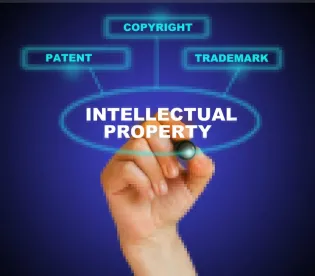AATRIX SOFTWARE, INC. v. GREEN SHADES SOFTWARE, INC.: February 14, 2018. Before Moore, Reyna, and Taranto.
Takeaway:
- Claims that focus on software innovations will generally be treated as a system claims.
- At the Rule 12(b)(6) stage, allegations of fact that are directed to the inventive concepts in the claimed invention that, if accepted, would satisfy step 2B of anAlice/Mayo analysis, the dismissal under Rule 12(b)(6) is improper.
- When addressing subject matter eligibility of a claim, a court must provide reasoning or evidence for a finding that claimed subject matter describes a well understood and routine component and function of a computer.
Procedural Posture:
Appellant Aatrix appealed the District Court’s dismissal under Rule 12(b)(6), in which the District Court considered asserted claims invalid as directed to ineligible subject matter under 35 U.S.C. § 101. Appellant Aatrix also appealed the District Court’s denial of its motion for leave to file a second amended complaint. The CAFC vacated the District Court’s grant of the motion to dismiss, reversed its denial of Aatrix’s motion for leave to file a second amended complaint, and remanded the case back to the District Court to allow the case to proceed.
Synopsis:
- Invalidity – Subject Matter Eligibility: The CAFC stated that patent eligibility can be determined at Rule 12(b)(6) stage only when there are no factual allegations that, taken as true, prevent resolving the eligibility question as a matter of law. However, the CAFC noted that plausible factual allegations preclude dismissing a case under § 101 where nothing on the record refutes those allegations as a matter of law or justifies dismissal under Rule 12(b)(6). According to the CAFC, the District Court erred in granting the Rule 12(b)(6) motion without claim construction and incorrectly concluded that claim 1 of one of the asserted patents is ineligible, based on its erroneous ruling that the claim is not directed to a tangible embodiment. The CAFC reasoned that claim 1, indeed, belongs to one the four statutory categories: process, machine, manufacture, composition of matter. Following its analysis of the claim under the Alice/Mayo test, the CAFC held that claim 1 is a system claim, because the claim is direct to software innovations. Even though the District Court did perform an Alice/Mayo analyses for the remaining claims, and dismissed the claims as ineligible pursuant to Rule 12(b)(6), the CAFC disagreed with the District Court’s decision not to permit an amended complaint. The CAFC held that, at the Rule 12(b)(6) stage, there were allegations of fact that, if Appellant Aatrix’s position were accepted, would preclude the dismissal. Therefore, the CAFC found that by allowing Aatrix to file the proposed amended complaint, which alleges facts directed to the inventive concepts in its claimed invention, such as improvements in the functioning and operation of the computer, allowing the lawsuit to proceed would not be futile. The CAFC further criticized the District Court for failing to support its decision with any reasoning or evidence that shows that the claimed data file describes a “well understood” and “routine” component and function of a computer.
Judge Reyna, concurring-in-part and dissenting-in-part:
- Invalidity – Subject Matter Eligibility: Judge Reyna concurred with the majority’s decision to vacate and remand to the District Court on the motion to dismiss, and agreed to vacate and remand on the motion for leave to file a second amended complaint. Nevertheless, Judge Reyna opposed, what he deemed, the majority’s treatment of the § 101 inquiry as a factual, instead of a legal question. A potentially negative effect of the majority’s approach that Judge Reyna presented is that, a plaintiff facing a 12(b)(6) motion may simply amend its complaint to allege extrinsic facts that, once alleged, must be taken as true, regardless of its consistency with the intrinsic record. According to the Judge Reyna, it is foreseeable that these notions could also extend to summary judgment proceedings, in addition to 12(b)(6) motions. Judge Reyna was concerned that, since there a motion to dismiss challenging the second amended complaint has not (yet) been filed, the Appellate Court should not pass judgment on matters not addressed by the District Court. Judge Reyna further noted that, as a result, Appellee Greenshades, has not been given the opportunity to present arguments with respect to the new pleading.





 />i
/>i

